Posted by Elena del Valle on May 3, 2018

The Making of a Massacre
Images: Audible, ProPulica
On May 4, 2018 the final parts of The Making of a Massacre, a five-part audio series (The first part of the series is already available for Audible members on the company website) should become available. In the series, Ginger Thompson, investigative reporter, ProPublica, takes listeners through the nonfiction story of the disappearance of dozens of people from Allende, a small Mexican border town. She relies on interviews, English voice over excerpts of interviews with townspeople, officials, and cartel members to illustrate “the way in which well-intentioned efforts to curtail the drug trade had devastating real-life results.”
The review edition of the audio recording, about two hours long, had uneven volume and at times it was difficult to distinguish sounds and words from sound effects and background noises. Despite multiple requests submitted two weeks in advance via a publishing company representative first and later directly to the journalist, Thompson declined to respond to questions about the recording.

Ginger Thompson
According to promotional materials, Thompson spent 15 years at The New York Times, including time as a Washington correspondent and as an investigative reporter whose stories revealed Washington’s secret role in Mexico’s fight against drug traffickers. While at The Times, she covered Mexico’s transformation from a one-party state to a fledgling multi-party democracy and into breaking news events across the region, including Cuba, Haiti and Venezuela.
For her work in the region, she was a finalist for The Pulitzer’s Gold Medal for Public Service. She won the Maria Moors Cabot Prize, the Selden Ring Award for investigative reporting, an InterAmerican Press Association Award, and an Overseas Press Club Award. Thompson was also part of a team of national reporters at The Times that was awarded a 2000 Pulitzer Prize for the series How Race is Lived in America.
Comments:
Filed Under: Books
Posted by Elena del Valle on April 26, 2018
Information provided by Event Partner
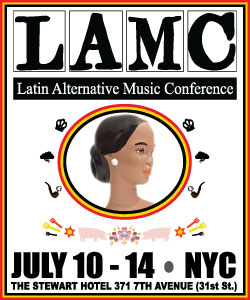
Latin Alternative Music Conference 2018
July 10th – 14th, 2018
New York City – Stewart Hotel
The Latin Alternative Music Conference is the only major conference devoted to bilingual and bicultural cutting edge music, art and entertainment. The five-day event includes industry panels, concert showcases, parties and films and draws a tastemaker crowd of leading artists, executives, journalists and forward thinkers. This July, the LAMC will be celebrating its 19th year. The conference will take place at the Stewart Hotel in Midtown Manhattan with concerts throughout New York City including Central Park SummerStage, Celebrate Brooklyn at Prospect Park, Lincoln Center, the Highline Ballroom, SOB’s and other iconic New York venues.
In its 19 years, the LAMC has made a name for itself as a hub of Latino culture, bringing talent from all over the world to celebrate Latino identity each summer. The NY Times hails it as the “Sundance of Latin music”. Don’t miss the dynamic industry panels, featuring many of the movers and shakers who are helping to further define today’s music market. Head over to latinalternative.com (http://www.latinalternative.com/) before online registration closes Sunday, July 1st!
Posted by Elena del Valle on April 23, 2018
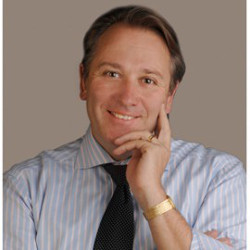
Marco Casanova, author, Branding IT 3.0
Photos: Marcocasanova.com
A podcast interview with Marco Casanova, author, Branding IT 3.0 is available in the Podcast Section of Hispanic Marketing & Public Relations, HispanicMPR.com. During the podcast, he discusses brand management with Elena del Valle, host of the HispanicMPR.com podcast.
Marco is the founder and managing partner of the Branding-Institute, which he began in 2002. He serves in various executive boards and does consulting as strategic advisor for Bayer and Credit Suisse among other enterprises and international organizations, associations and countries and their governmental institutions in brand and reputation guided stakeholder management.
He was the founder of the Community of Interest COI Branding in Switzerland as well as co-founder and co-chairman of the International Brand & Reputation Community (INBREC), where ABB, Allianz, Bayer, Bosch, Henkel, Hilti, Mercedes, Schindler, Shell, Siemens, and UBS meet regularly. He is an international speaker for several executive management programs, the United Nations and conferences in Europe, China, India, and South America.
To listen to the interview, scroll down until you see “Podcast” on the right hand side, then select “HMPR Marco Casanova” and click on the play button below or download the MP3 file to your iPod or MP3 player to listen on the go, in your car or at home from the RSS feed. Some software will not allow flash, which may be necessary for the play button and podcast player. If that is your case, you will need to download the file to play it. To download it, click on the arrow of the recording you wish to copy and save it to disk. The podcast will remain listed in the April 2018 section of the podcast archive.
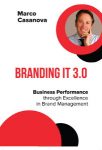
Click to buy Branding It 3.0
Posted by Elena del Valle on April 16, 2018
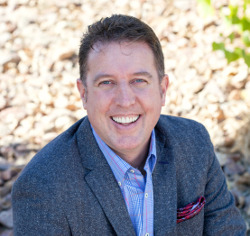
Ken Dunn, CEO, GoRead.com
Photo: Ken Dunn
A podcast interview with Ken Dunn, CEO, GoRead.com, is available in the Podcast Section of Hispanic Marketing & Public Relations, HispanicMPR.com. During the podcast, he discusses writing a book to achieve your business goals with Elena del Valle, host of the HispanicMPR.com podcast.
Ken’s passion is eliminating illiteracy and also helping experts turn their experience into a highly profitable authority platform. Fourteen years in investigative and tactical policing allowed Ken to hone deep organizational and leadership skills, and sparked an entrepreneurial fire inside of him. Throughout his law enforcement career, he also helped to start businesses, which was the beginning of his serial entrepreneurial path.
Ken hungers to learn and teach others, which has led him through five careers in the past 25 years. In addition to his work as founder at GoRead.com he is an international speaker, author and sales trainer. Ken is an avid reader (he reads a book per week), in addition to being an author and publisher, and he believes that more people should be made aware of the widespread issue of child illiteracy.
To listen to the interview, scroll down until you see “Podcast” on the right hand side, then select “HMPR Ken Dunn” and click on the play button below or download the MP3 file to your iPod or MP3 player to listen on the go, in your car or at home from the RSS feed. Some software will not allow flash, which may be necessary for the play button and podcast player. If that is your case, you will need to download the file to play it. To download it, click on the arrow of the recording you wish to copy and save it to disk. The podcast will remain listed in the April 2018 section of the podcast archive.
Posted by Elena del Valle on April 12, 2018
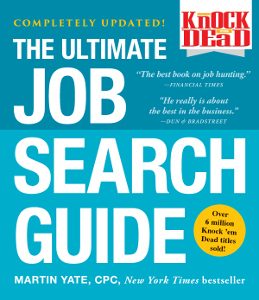
The Ultimate Job Search Guide
Photos: Simon and Schuster, Knock ’em Dead
For 32 years Martin Yate, CPC has been “thinking about, writing and helping people through the issues that can advance a career or get a stalled one back on track.” During that time he has shared his insights in 18 books in 85 editions. Updating existing books requires approximately three months of work. In the 32nd edition of Knock ’em Dead: The Ultimate Job Search Guide (Adams Media, $17.99) published last year he outlines his latest tips for job finding.
When asked about the target audience for his book he replied by email “…anyone who can read, wants to be successful, achieve financial stability and live a personally fulfilled life. The professional world. I have readers who started with me after graduation and now make speeches at Davos & G7, single parents struggling to get ahead from a bad starting place, and everything in between. I have honed a comprehensive and completely new approach to career management that makes sense to anyone at any age, professional title, socio-economic status or situation. I don’t waste words so every page of every book offers common-sense advice that anyone can apply to their unique situations, which is all focused on you personally, achieving success, stability and fulfillment.”
The 400-page softcover book is divided into 30 chapters and four parts: The Well-Stocked Briefcase, Get the Word Out, Great Answers to Tough Interview Questions and Finishing Touches. It addresses age discrimination, career changes, confidential job searches, staying ahead of disruptions as well as answering tricky and touch interview questions, social media and other job search and job finding issues. The chapters include tips, highlighted in a blue background.
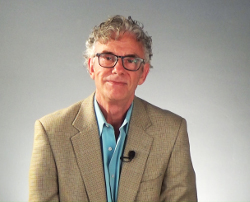
Martin Yate, CP, author, The Ultimate Job Search Guide
“My 360 degree understanding of career issues that come from being one of the early Silicon Valley international technology headhunters, Director of HR at Bell Computer Memory Division, Dir of Training & Development at world’s 3rd largest employment services company, and spending the majority of my waking moments for 32 years, thinking about, writing and helping people through the issues that can advance a career or get a stalled one back on track,” the author said when asked about his qualifications to write the book.
When asked about the impact of artificial intelligence on the job market he replied, “It’s too scary to think about but think and prepare we must because since 1948, recessions have come round with regularity every 7-10 years; each time they get a little deeper, with longer recovery every time. The last one topped out at 10 percent unemployment in 2012, and 6 percent of our workforce are discouraged workers many of whom lost their ability to make a living because of the impact of earlier waves of technology adoption.
Now let’s add in the impact of AI: No less an authority than Forrester Research released a report last year on the impact of of AI on employment by 2027, the highlights are: We will lose 16 percent of all jobs, at all levels, in all industries and professions and that 30 percent of today’s heritage technology companies will cease to exist. Put these facts together and we could be looking at 20 percent+ unemployment.”
To the question of what jobs might be available in the next decade he replied, “The same Forrester report predicted 9 percent of new jobs created will be in AI. Beyond this it is almost impossible to say. I have a belief that this upheaval will necessarily increase entrepreneurial endeavor. Beyond that the safest jobs will be those that are driven by demographics (example the aging population), or require interaction with the customer, making the professional trades more appealing.”
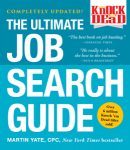 Click to buy Knock ’em Dead: The Ultimate Job Search Guide
Click to buy Knock ’em Dead: The Ultimate Job Search Guide
Comments:
Filed Under: Books
Posted by Elena del Valle on April 2, 2018
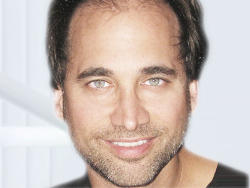
Ira Pastor, CEO, Bioquark
Photo: Bioquark Inc.
A podcast interview with Ira Pastor, CEO, Bioquark Inc., is available in the Podcast Section of Hispanic Marketing & Public Relations, HispanicMPR.com. During the podcast, he discusses regeneration, repair and rejuvenation with Elena del Valle, host of the HispanicMPR.com podcast.
Ira has over 30 years of experience across multiple sectors of the pharmaceutical industry including pharmaceutical commercialization, biotech drug development, managed care, distribution, and retail. According to his biography, prior to working at Bioquark he served as vice president, Business Development for drug development company Phytomedics Inc., raising $40 million of private equity, consummating over $50 million of licensing deals, and bringing a lead drug candidate from discovery stage to Phase III development.
Prior to that, he was employed by SmithKline Beecham Pharmaceuticals in sales, marketing, and business strategy positions. He has also served as vice president of Corporate Development for the pharmacy benefit management company Prescription Delivery Systems (acquired by Cigna Health Insurance). He is board member of RegenerAge SAPI de CV, the Reanima Project, and member of the World Economic Forum’s Human Enhancement Council.
To listen to the interview, scroll down until you see “Podcast” on the right hand side, then select “HMPR Ira Pastor” and click on the play button below or download the MP3 file to your iPod or MP3 player to listen on the go, in your car or at home from the RSS feed. Some software will not allow flash, which may be necessary for the play button and podcast player. If that is your case, you will need to download the file to play it. To download it, click on the arrow of the recording you wish to copy and save it to disk. The podcast will remain listed in the April 2018 section of the podcast archive.
Posted by Elena del Valle on March 28, 2018
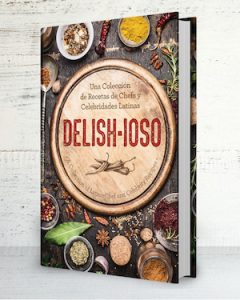
Delish-ioso
Photos: Eclipse Marketing Services, Inc., delishioscookbook.com
In 2017, nine women and eight men television stars, entertainers and celebrity chefs, most Spanish language celebrities with ties to Latin America, shared 45 recipes of favorite dishes in Nexos Latinos’ Delish-ioso: A Collection of Latino Chef and Celebrity Recipes (Eclipse Marketing Services, Inc., $35). The publication targets bilingual and bicultural Hispanic American food lovers, who are family oriented, like “to spend time cooking and following Latino celebrities; also favor brands and products that give back to the community.”
The full color book includes recipes in Spanish and English, in that order, and the Spanish language font is larger than the English language font. It features recipes from Colombia, Cuba, Dominican Republic, Mexico, Puerto Rico, and Venezuela.

Farruko, contributor, Delish-ioso
The 234-page hardcover book printed in the United States includes page sized photos of the contributors and dishes as well as cultural tidbits about the recipes. The project required one year from idea to publication and features the work of 53 photographers. The publisher partnered with Hudson County Community College (HCCC). According to promotional materials, for every book sold a portion of the net profit will be donated to the HCCC Foundation to benefit its culinary arts program.
To the question of what portion of the net profits exactly will be donated to HCCC, a spokesperson replied by email as follows: “With the sale of every book we will be donating a portion of the net profits to the Culinary Arts Institute of the Hudson County Community College (HCCC). The HCCC Culinary Arts and Hospitality Management program is nationally recognized for excellence and was ranked sixth ‘Best Culinary School’ in the U.S. by ‘Best Choice Schools.’ The HCCC is also designated as a Hispanic-Serving Institution (HSI), one of only 275 colleges and universities in the U.S. recognized as such by the Hispanic Association of Colleges and Universities (HACU). By partnering on this cookbook, the college will benefit from a portion of the net profits, and have the ability to continue awarding distinguished students financial scholarships.”
The cookbook’s editor-in-chief was Donna Hernández, who, according to promotional materials has over 20 years of experience with the United States Hispanic market. Hernández invited celebrities she had worked with in the past to be a part of the project.

Lorena Garcia, contributor, Delish-ioso
The project participants, who will receive no financial remuneration for their recipes, are: Karla Martinez, TV host, Univision; Ingrid Hoffmann, celebrity chef; Luis Coronel, singer; Jacob Forever (Yosdani Jacob Carmenates), singer; Sharlene Taule, actress and singer; Helen Ochoa, singer; James Tahhan, celebrity chef, Telemundo; Jonatan Sanchez, singer; Lorena Garcia, celebrity chef; Jessica Carrillo, TV host, Telemundo; Farruko (Carlos Efrén Reyes Rosado), singer; Silvestre Dangond, singer; Vianney Rodriguez, blogger, sweetlifebake.com; Leslie Grace (Leslie Grace Martinez), singer; Adriel Favela, singer; and Omar Giner, chef and restaurant owner.
Nexos Latinos is a magazine and brand published by Eclipse Marketing Services, Inc. Nexos Latinos and Eclipse Marketing Services are owned by Margaret Boller, who is the chief executive officer and Founder. The cookbook is available exclusively on the company website.
Comments:
Filed Under: Books
Posted by Elena del Valle on March 19, 2018

Click to enlarge – Carmen Mohan, M.D., Ruth Parker, M.D. and Jeff Galloway, co-authors, The Women’s Guide to Health
Photo: authors photo by Nikki Strayhorn, book cover courtesy of Meyer & Meyer Sport
A podcast interview with co-authors Jeff Galloway, Carmen Mohan, M.D., and Ruth Parker, M.D., is available in the Podcast Section of Hispanic Marketing & Public Relations, HispanicMPR.com. During the podcast, they discuss The Women’s Guide to Health Run Walk Run, Eat Right, and Feel Better (Meyer & Meyer Sport, $12.95) with Elena del Valle, host of the HispanicMPR.com podcast.
Jeff, an Olympic athlete, has spent more than 50 years developing, practicing, evaluating, and teaching his Run Walk Run method. He has coached over one million runners to their goals through his retreats, clinics at events, and individual consultations, running schools and books.
Carmen is an internal medicine physician, health media consultant, and marathon runner who prescribes food and exercise as medicine. A competitive runner in college, she suffered injury after injury until beginning Run Walk Run.
Ruth is a primary care doctor trained in Internal Medicine and Pediatrics. She is a lifelong athlete who has completed 28 marathons using Run Walk Run. According to her biography, she is nationally known for her work in health literacy.
To listen to the interview, scroll down until you see “Podcast ” on the right hand side, then select “HMPR ” and click on the play button below or download the MP3 file to your iPod or MP3 player to listen on the go, in your car or at home from the RSS feed. Some software will not allow flash, which may be necessary for the play button and podcast player. If that is your case, you will need to download the file to play it. To download it, click on the arrow of the recording you wish to copy and save it to disk. The podcast will remain listed in the March 2018 section of the podcast archive.

Click to buy The Women’s Guide to Health
Posted by Elena del Valle on March 13, 2018
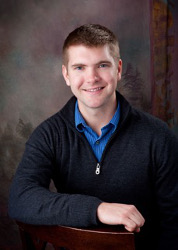
Adam Gentner, director of Business Development, Latin American Expansion, Sonnen
Photo: Adam Gentner
A podcast interview with Adam Gentner, director of Business Development, Latin American Expansion, Sonnen, is available in the Podcast Section of Hispanic Marketing & Public Relations, HispanicMPR.com. During the podcast, he discusses microgrids to power Puerto Rico with Elena del Valle, host of the HispanicMPR.com podcast.
Adam has six years of Solar Industry experience. He likes exploring the way technology and renewables can reshape the energy landscape to meet the challenges of the future, especially in disaster-stricken areas and developing regions. Prior to joining sonnen, Adam worked in technical support leadership with Fronius USA.
Adam has a passion for humanitarian work, having volunteered with various organizations from Minnesota to Chile, and most recently spent a year with the Benedictine Volunteer Corps in Esquipulas, Guatemala.
To listen to the interview, scroll down until you see “Podcast Adam Gentner” on the right hand side, then select “HMPR ” and click on the play button below or download the MP3 file to your iPod or MP3 player to listen on the go, in your car or at home from the RSS feed. Some software will not allow flash, which may be necessary for the play button and podcast player. If that is your case, you will need to download the file to play it. To download it, click on the arrow of the recording you wish to copy and save it to disk. The podcast will remain listed in the March 2018 section of the podcast archive.
Posted by Elena del Valle on March 8, 2018

Wildlife in Wild Lands
Photos: Laura Crawford Williams
After years of intense work at a software company in the 1990s Laura Crawford Williams needed to recharge so she turned her attention to wildlife photography. She began near her home and in time traveled far away to capture images that were published in wildlife magazines. She has spent 18 years as a wildlife conservation photographer. In October 2017, Wildlife in Wild Lands Photography for Conservation in Southern South America (My Wild Life Press, $34.95), her first photography book, was published.
“I never intended to become a professional wildlife photographer. I was simply doing what I love to do,” she said by email through her publicist when asked about her work.
She used two Nikon D4s camera bodies with various professional lenses, filters, and a tripod. All photography was completed between 2007 and 2015 for the 230-page softcover book. Book conception and production, at its earliest stages, began in November of 2015.
When asked about her goal in publishing the book she replied, “We are the only species with the ability to modify the planet so significantly that we affect the lives of every other species living here. As a result, species are disappearing at an unprecedented rate. We must all participate in the protection of habitats and species as citizens, organizations, federal entities, and local governments. This project is my labor of love to that end. I hope to inspire in others, my own desperate desire to protect the natural world – every tiny, amazing piece of it!”
The book has six chapters, in English and Spanish, and 150 large (some occupying most of the page) photographs of 113 species; each with captions describing behavior, conservation challenges and status. There are 66 photos in a final chapter, titled Between Frames, with accompanying descriptions of her work and adventures in the field.
She photographed several animals in rehabilitation centers where animals are unable to be re-released due to injury or illness. Images of captive animals are labeled in the accompanying caption.
When asked about enhancement software and modification of the photos from their raw originals she replied, “Nikon RAW files were brought into Photo Mechanic and selected files were converted to TIFF format. TIFF files were then opened in Photoshop for global edits such as contrast, saturation, color-balance, noise, sharpening, cropping, or straightening, as needed or desired. I call these global edits since they are applied to the entire image and not to selected areas. Occasionally, when I felt the image would benefit visually by focusing on the subject more directly, I’d add a vignette or graduated neutral density filter via Photoshop (if I had not already done so in the field). I will also sharpen selectively as needed.”

Laura Crawford Williams
“I did not receive any money or in kind contributions from a third party in exchange for promotion, mention in the book,” the photographer replied when asked whether she received money or in kind contributions from a third party in exchange for promotion, mention in the book. “Sponsorship and endorsement were given and offered freely. We raised $60,126 during a 30 day Kickstarter campaign in October. However, once we paid the required Kickstarter fees, costs related to reward production/fulfillment, and income tax we were left with just over half that amount. I financed the entire project outside of the Kickstarter contribution. All money earned via sales and presentation goes toward reimbursement for the remaining book production and marketing costs. Once the production and marketing budget is reimbursed, any and all proceeds will go into an account setup specifically for the printing of additional editions. This is the agreement I made with the National Parks Association, National Parks Foundation, and President Mauricio Macri of Argentina.”
Crawford Williams plans to publish two more photography books. “People have been asking if I would write a book about my adventures in the field with my team,” she said when asked about future books. “Audiences have thoroughly enjoyed hearing stories about being on the road in some of the most remote areas of the world, as well as about working with potentially dangerous species. They can’t believe some of the uncomfortable challenges we had to overcome. As for the second one, I have a large collection of images taken while living and working in the prairies of Iowa, Nebraska, and South Dakota for 12 years. I’d like to showcase the best of this collection and inspire people to appreciate the subtle and fragile beauty found in our prairie ecosystems.”

Click to buy Wildlife in Wild Lands (English and Spanish Edition)
Comments:
Filed Under: Books




























